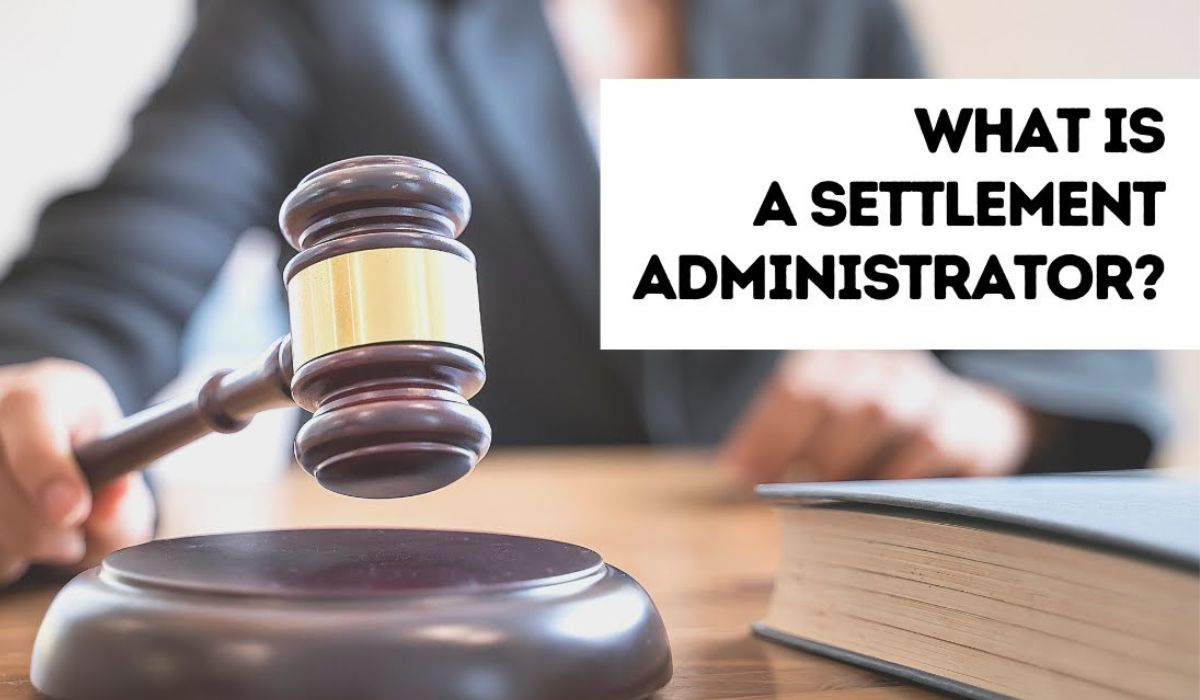Introduction
The role of an AEB Settlement Claims Administrator is crucial in ensuring that claims related to the AEB settlement are handled fairly and efficiently. This position involves overseeing the claims process, ensuring accurate and timely processing, and maintaining high standards of ethical conduct. Understanding the responsibilities of the claims administrator is essential for anyone involved in or affected by the settlement. This article will explore the role of the AEB Settlement Claims Administrator, the claims process, and best practices for effective claims administration.
Understanding the AEB Settlement
Providing a Brief Overview of the Case
The AEB (Accountability and Equitable Benefit) settlement pertains to a legal case involving specific claims and compensations. This settlement may arise from various scenarios, including class action lawsuits or disputes over contractual obligations. The goal of the settlement is to provide fair compensation to affected parties and resolve the issues addressed in the case.
The Role of the Claims Administrator
The Claims Administrator is tasked with managing the claims process for the AEB settlement. This role involves collecting, reviewing, and processing claims submitted by individuals or entities affected by the settlement. The administrator ensures that all claims are handled in accordance with the settlement terms and legal requirements.
Importance of Accurate Claims Processing
Accurate and efficient claims processing is crucial for several reasons:
- Fair Compensation: Ensures that all eligible claimants receive the compensation they are entitled to.
- Trust and Integrity: Builds trust in the settlement process by maintaining transparency and fairness.
- Compliance: Adheres to legal and regulatory requirements, preventing potential disputes or legal issues.
Qualifications and Responsibilities
Required Skills and Experience
To effectively serve as an AEB Settlement Claims Administrator, candidates must possess specific skills and experience:
- Experience in Claims Administration: Prior experience in managing claims, particularly in legal or financial contexts, is essential.
- Knowledge of Legal Procedures: Understanding legal terminology and procedures related to settlements and claims.
- Attention to Detail: Ability to review and assess claims accurately, ensuring compliance with settlement terms.
- Communication Skills: Proficiency in communicating with claimants, legal teams, and other stakeholders.
Key Responsibilities
The primary responsibilities of a claims administrator include:
- Processing Claims: Receiving, reviewing, and verifying claims submitted by individuals or entities.
- Evaluating Eligibility: Determining the eligibility of claims based on the settlement terms and guidelines.
- Disbursing Funds: Ensuring that approved claims receive timely and accurate compensation.
- Maintaining Records: Keeping detailed records of all claims, correspondence, and decisions.
Legal and Ethical Obligations
Claims administrators must adhere to various legal and ethical standards:
- Confidentiality: Protecting the personal and financial information of claimants.
- Impartiality: Ensuring fair and unbiased handling of all claims.
- Compliance: Following all legal requirements and settlement terms to prevent disputes or legal issues.
The Claims Process
Filing a Claim
The process of filing a claim involves several steps:
- Submission: Claimants submit their claims according to the guidelines provided.
- Documentation: Providing necessary documentation to support the claim, such as proof of loss or eligibility.
- Verification: Claims are verified for accuracy and completeness.
Reviewing and Assessing Claims
Claims administrators review and assess each claim to ensure it meets the eligibility criteria. This involves:
- Evaluating Documentation: Checking the provided documents for accuracy and relevance.
- Determining Eligibility: Assessing whether the claimant meets the criteria set forth in the settlement agreement.
- Making Decisions: Approving or denying claims based on the assessment.
Communicating with Claimants
Effective communication is key to a smooth claims process. Administrators should:
- Provide Updates: Keep claimants informed about the status of their claims.
- Answer Queries: Respond to questions and concerns promptly.
- Clarify Requirements: Explain any additional documentation or information needed.
Resolving Disputes
Disputes may arise during the claims process. Administrators should:
- Address Conflicts: Resolve disagreements between claimants and the administration.
- Review Appeals: Evaluate appeals from claimants who disagree with the initial decision.
- Seek Mediation: In some cases, involve third-party mediation to resolve complex issues.
Challenges and Best Practices
Common Challenges
Claims administrators may face several challenges, including:
- High Volume of Claims: Managing and processing a large number of claims efficiently.
- Complex Cases: Handling complex or unusual claims that require additional scrutiny.
- Dispute Resolution: Effectively managing disputes and appeals.
Best Practices for Claims Administration
To overcome these challenges, consider the following best practices:
- **Streamlined
Processes: Implement efficient systems and workflows to handle claims promptly and accurately.
- Training: Provide ongoing training for staff to stay updated on legal and procedural changes.
- Technology Utilization: Use technology and software to automate and streamline claims processing.
- Clear Communication: Maintain open and clear communication with claimants to ensure they understand the process and requirements.
Avoiding Common Mistakes
To prevent errors and delays, avoid common mistakes such as:
- Incomplete Documentation: Ensure all required documents are submitted and reviewed.
- Bias in Processing: Avoid any bias or favoritism in claims handling.
- Ignoring Deadlines: Adhere to deadlines for processing claims and responding to inquiries.
Legal and Regulatory Considerations
Relevant Laws and Regulations
Claims administrators must comply with various laws and regulations, including:
- Consumer Protection Laws: Ensuring fair treatment of claimants and adherence to legal standards.
- Data Protection Regulations: Complying with laws regarding the protection of personal and financial information.
- Settlement Agreement Terms: Following the specific terms and conditions outlined in the settlement agreement.
Compliance with Settlement Terms
It is essential to adhere to the terms of the settlement agreement, including:
- Eligibility Criteria: Verifying that all claims meet the established criteria.
- Payment Guidelines: Following guidelines for calculating and disbursing compensation.
- Reporting Requirements: Providing necessary reports and documentation as required by the settlement agreement.
Ethical Considerations
Ethical principles in claims administration include:
- Integrity: Maintaining honesty and integrity in all aspects of the claims process.
- Fairness: Ensuring fair and equitable treatment of all claimants.
- Transparency: Being transparent about the claims process and decisions.
The Impact of Claims Administration on the Settlement
Ensuring Fair Compensation
Effective claims administration ensures that all eligible claimants receive fair compensation according to the settlement terms. This helps to uphold the integrity of the settlement and maintain trust among claimants.
Preventing Fraud and Abuse
Administrators must implement measures to prevent fraudulent claims and abuse, such as:
- Verification Processes: Implementing rigorous verification processes to detect and prevent fraud.
- Monitoring and Auditing: Regularly monitoring and auditing claims to identify any irregularities.
Promoting Transparency and Accountability
Transparency and accountability are crucial for maintaining trust in the claims process. This involves:
- Clear Reporting: Providing clear and accurate reports on claims processing and outcomes.
- Public Communication: Communicating openly with the public and claimants about the status and results of the claims process.
Career Opportunities
Job Outlook and Salary
The role of a claims administrator offers promising career prospects. Opportunities exist in various sectors, including legal firms, insurance companies, and settlement administration firms. Salaries can vary depending on experience and location but generally offer competitive compensation.
Professional Development
Claims administrators can advance their careers through:
- Certifications: Obtaining relevant certifications, such as Certified Claims Professional (CCP).
- Advanced Degrees: Pursuing advanced degrees in fields such as law or business administration.
- Specializations: Gaining expertise in specific areas of claims administration, such as complex litigation or regulatory compliance.
Networking and Building Relationships
Building professional connections is vital for career growth. Networking opportunities include:
- Industry Conferences: Attending conferences and seminars related to claims administration.
- Professional Associations: Joining associations and organizations for claims professionals.
- Mentorship: Seeking mentorship from experienced professionals in the field.
You May Also Like: Kennedy Funding Ripoff Report: Investigating Allegations
Conclusion
The role of an AEB Settlement Claims Administrator is pivotal in ensuring the fair and efficient processing of claims related to the AEB settlement. By understanding the responsibilities, adhering to legal and ethical standards, and implementing best practices, claims administrators can effectively manage the claims process and contribute to the successful resolution of the settlement. This role not only impacts the outcome of the settlement but also plays a crucial part in maintaining the trust and integrity of the claims process.
FAQs
What is the role of an AEB Settlement Claims Administrator?
- The claims administrator manages the claims process, ensuring fair and accurate processing of claims related to the AEB settlement.
What qualifications are needed to be an AEB Settlement Claims Administrator?
- Required qualifications include experience in claims administration, knowledge of legal procedures, attention to detail, and strong communication skills.
How does the claims process work for an AEB settlement?
- The process involves filing a claim, reviewing and assessing claims, communicating with claimants, and resolving any disputes.
What are common challenges faced by AEB Settlement Claims Administrators?
- Challenges include handling a high volume of claims, managing complex cases, and resolving disputes effectively.
What best practices should AEB Settlement Claims Administrators follow?
- Best practices include streamlining processes, providing training, utilizing technology, and maintaining clear communication with claimants.










